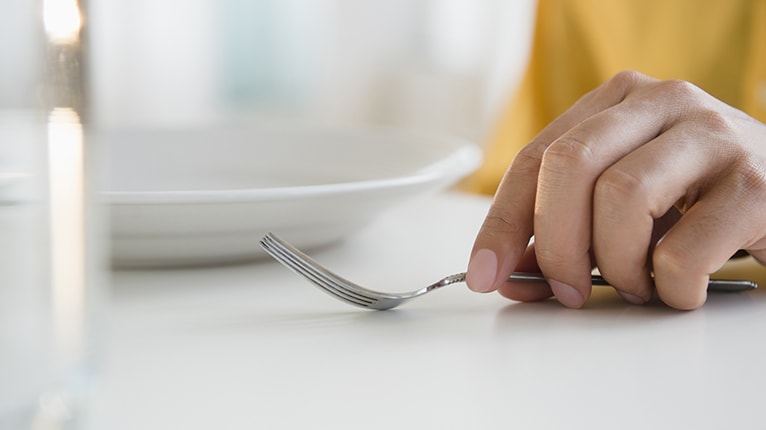Managing nutritional concerns: Weight loss
Managing nutritional concerns: Weight loss

Decreased oral intake of calories along with the increased energy demands of cancer itself can lead to rapid loss of weight and muscle mass. Weight loss can be related to decreased nutritional intake due to painful mouth sores, constipation, pain, nausea, vomiting, depression, or changes in gastrointestinal function. It is important to bring weight loss to the attention of your healthcare provider as soon as possible so that steps can be taken to manage any symptoms that are leading to weight loss.1
Nutritional counseling can also help by creating a plan to improve oral intake and prevent weight loss. Often, if medically approved, increasing physical activity can help to stimulate appetite. Patients may be counseled to eat calorie-dense foods and supplemental high-calorie, high-protein meals and shakes.
Tips for People Experiencing Weight Loss2,3:
- Eat small frequent meals (5-6 times a day) instead of 3 large meals. Aim to eat something at least every 2-3 hours
- Add extra calories to your diet by adding extra butter, oil, mayonnaise, sauces, dressing, gravy, honey, jam, cheese, and nuts to your meals
- Add extra protein by including poultry, meat, fish, eggs, yogurt, cheese, beans and nuts to your meals and snacks. Dried milk powder mixed in gravies, soups, and sauces can also add extra protein
- Keep nutritious snacks nearby or with you as you travel. High protein snacks such as peanut butter crackers, granola bars, nuts, yogurt, pudding, and cheese can be helpful. Having quick nutritious snacks on hand can make it easier for you to eat
- Drink high calorie liquids such as juice, milkshakes, smoothies, and protein drinks
- Try nutritional supplements or liquid meal replacements if recommended by your physician and healthcare team
- Drink fluids half an hour before or after meals as some people find consuming beverages with meals can make them feel fuller
- Exercise can help stimulate your appetite; ask your doctor if you should increase your activity
- Try to make mealtime enjoyable. Invite friends or family over or play relaxing music
Communicate with your doctor or nurse about what you are experiencing. Contact your doctor or nurse if you are consistently losing weight and if you are unable to eat or drink adequate amounts by mouth.
References:
- Weight Loss. Cancer.Net. http://www.cancer.net/navigating-cancer-care/side-effects/weight-loss. Accessed December 6, 2016.
- Elliot, L. Symptom Management of Cancer Therapies in Lesser M, Ledesma N, Bergerson S, Trujillo E, eds. Oncology Nutrition for Clinical Practice. Oncology Nutrition Dietetic Practice Group of the Academy of Nutrition and Dietetics: 2013. pg 115.
- American Institute for Cancer Research, Savor Health and LIVESTRONG. Heal Well: A Cancer Nutrition Guide. 2013. http://savor.static.assets.s3.amazonaws.com/pdfs/Heal_Well_Cancer Guide_2015-web.pdf. Accessed December 6, 2016.
The health information contained herein is provided for educational purposes only and is not intended to replace discussions with a health care provider. All decisions regarding patient care should be made with a health care provider.

















